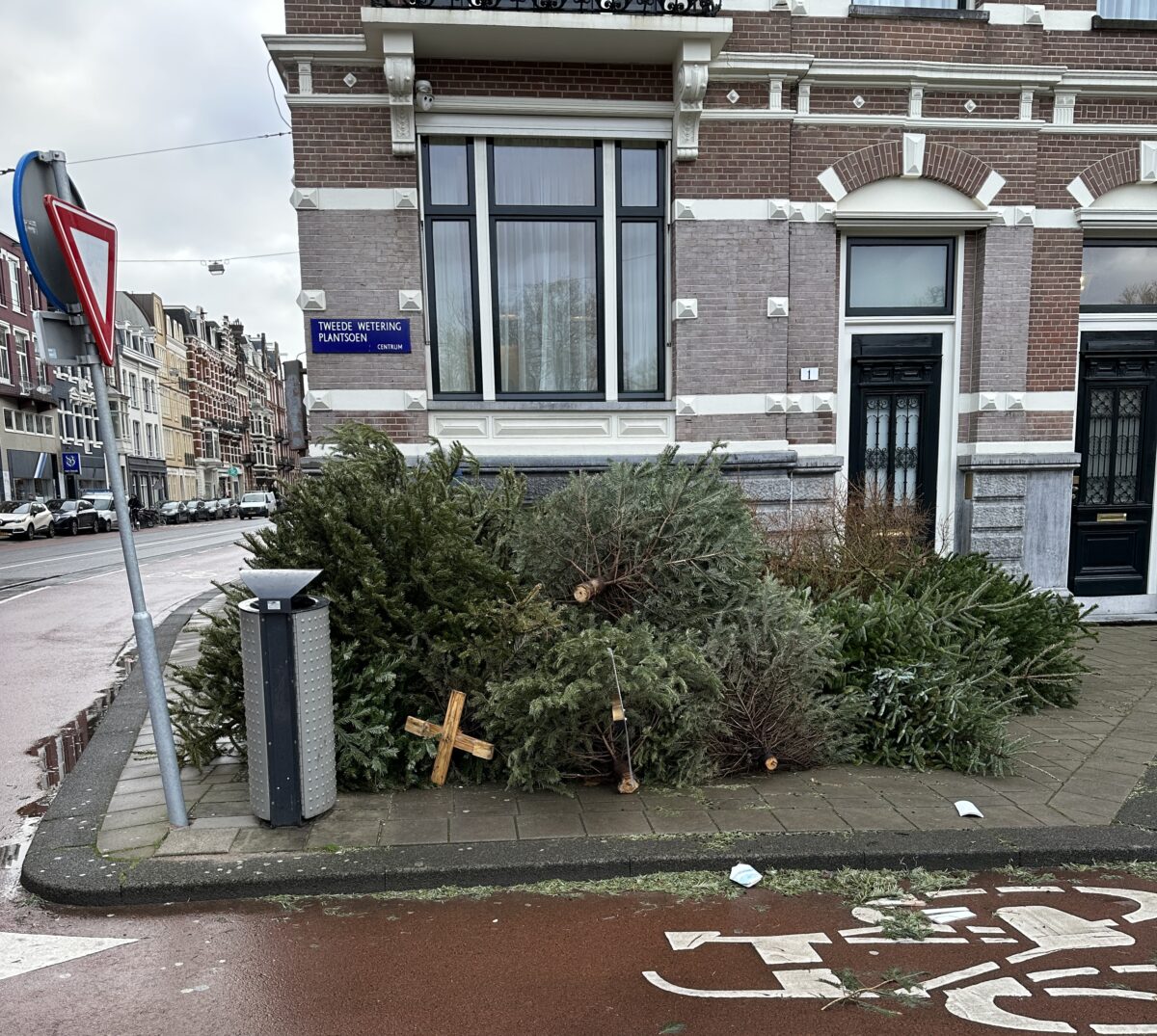Info Box
- Fact
- Fact 2
- Fact 3
— This post is part of BikePortland Staff Writer Taylor Griggs’ trip through Europe. See previous dispatches here.
She said something along the lines of: “Amsterdam is a lot like Portland,” and then, whispered: “except for the homeless people.”
Could Portland have nice, well-maintained public spaces like the Dutch do? In the comments of the story I wrote yesterday about the bounty of “third places” in The Netherlands, someone said it wouldn’t be feasible: any space offered to Portland’s public free of charge would soon be overrun with trash and needles. (This point is brought up a lot when we talk about creating more public amenities in Portland.)
Now, I might not feel like the comments on yesterday’s post warranted a story of their own, but this discussion emphasized another experience I had a few days ago. I was briefly chatting with an American woman in Amsterdam who lived in Portland at some point recently, and when we discovered our mutual connection, she said something along the lines of: “Amsterdam is a lot like Portland,” and then whispered: “except for the homeless people.”
I posted this anecdote almost verbatim on Twitter and it got more attention that I expected. Some people chimed in with their opinions on why she would say something like this. Now, I don’t want to single this woman out specifically — I’m sure other people have made the same comparison, and I have no idea what her relationship to Portland’s homeless population is — but I do think it’s worth looking at why Portland has a far more visible problem with homelessness (and things typically associated with homelessness, like public drug use) than Amsterdam does.
It’s not a value judgment to say that you don’t see trash and needles in The Netherlands to the same extent that you do in Portland. And it didn’t take me long to figure out why: dealing with trash is built into the city’s DNA. Unlike in Portland, there are public trash cans everywhere in Amsterdam. If you need a place to put your garbage while walking around the city, you don’t have to hope someone left their trash bin out in their driveway and won’t yell at you for using it. You can simply toss it in one of the many facilities available for everyone to use.
Let’s talk needles, then. The existence of a sufficient needle exchange program in Portland has been limited by people’s concerns that the availability of a place to dispose of needles and syringes will encourage drug use, (despite no evidence to support that idea) so there simply aren’t very many places for people to dispose of them. In comparison, Amsterdam created the first needle and syringe exchange program in the 1980s to good effect, and there are several options available for people who want to dispose of their used needles now. (Thanks to government efforts, they also don’t have an ongoing opioid epidemic like we do in the U.S.)
And these public facilities are just additions to the social safety network already present in western European countries (and many other places outside of the United States), which gives people access to healthcare, education and housing subsidies.
This isn’t to say the system works perfectly. The rising cost of living in The Netherlands has made way for a resurgence of a squatting movement that first took off in the 1960s within Amsterdam’s student population. But compared to the U.S., Dutch residents have a lot more resources at their disposal, and this includes public playgrounds and carfree spaces.
Without a government willing to provide basic resources for its residents, it will be a lot more difficult to see Dutch infrastructure in the United States. This much is clear just by looking at the way Amsterdam deals with its trash.



